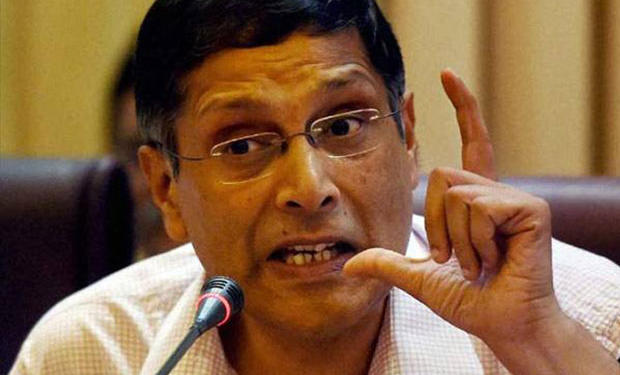In his new book, reminiscing on his tenure as the Chief Economic Advisor from 2014 to 2018, Arvind Subramanian has claimed that demonetisation was a “massive, draconian, monetary shock.” Naturally, the media had a field day in projecting this as an admission of demonetisation’s failure from the man who was tasked with implementing the exercise. The demonetisation naysayers were gleeful and the mainstream media left no stone unturned to portray this as some sort of guilty confession.
Arvind Subramanian had first indicated about writing a memoir, and including the demonetisation issue in it, during a discussion at the Delhi Economics Conclave in 2017. However, no one could have predicted that he would be using the term “draconian” to describe the exercise in his memoir considering his radically different views on the demonetisation issue back then. Although, media liked to portray Arvind Subramanian as some sort of ‘unwilling accomplice’ in the drive, his statements indicate that he was fully supportive of the demonetisation. During an interview, Arvind Subramanian defined the demonetisation, “It is a radical currency-cum-governance-cum-social engineering measure aimed at permanently and punitively raising the cost of illicit and unaccounted transactions.” Similarly, emphasizing the benefits of demonetisation, Subramanian stated that “It is likely reduce corruption, lead to digitalisation, reduce black money and lead to reduction in real estate prices.” Elaborating on the impact of demonetisation on real estate, Arvind Subramanian had stated in 2017, “Real estate on the other hand, you do see a dip in prices, in sales, in launches and of course, some of it may be adverse of the economy, but in the long run, some of that is also good, because in equilibrium, the aim of demonetisation, is in fact, to bring down real estate prices.”
There are multiple such examples of Arvind Subramanian’s endorsement, support and validation of the demonetisation drive.




But perhaps the biggest endorsement of the demonetisation drive came from the Economic Survey, a report on macroeconomic trends of the country which was prepared by Subramanian and his team. The Economic survey clearly stated that India’s financial savings have increased thanks to demonetisation. The survey report further added, “India’s unprecedented climb to historic high levels of investment and saving rates in the mid-2000s has been followed by a pronounced, albeit gradual decline. This current episode of investment and saving slowdown is still ongoing. The ratio of domestic saving to GDP reached 29.2 percent in 2013 to a peak of 38.3 percent in 2007, before falling back to 29 percent in 2016. Post which it has been growing.”
Another positive factor that Arvind Subramanian led survey attributed to demonetisation was increase in indirect taxpayers. According to the survey, “There has been a 50 percent increase in the number of indirect taxpayers; and a large increase in voluntary registrations, especially by small enterprises that buy from large enterprises and want to avail themselves the input tax credits.”
The recent statement of Arvind Subramanian, then, comes as a surprise, taking into account his earlier statements. The mystery is, what contributed to this change of perspective barely months after leaving the office for personal reasons? This retrospective assessment clearly contradicts his earlier statements and so far, Subramanian has not provided a reason for this change of heart.
During the panel discussion in which he first revealed his intention to write a memoir, he had, in response to a question on demonetisation, quipped “Why do you want to deprive my memoir of commercial value?” In retrospect, perhaps this statement was much more telling.



























